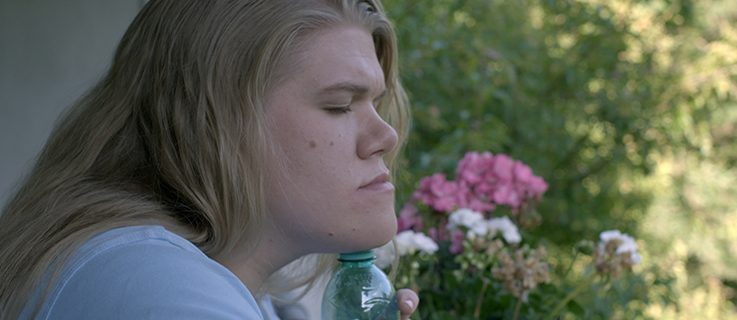These two films open this year’s section “German cinema perspectives”: “Gabi” and “Back For Good” are mini-treatises on the subject of identity – women’s identities, in both cases.
Angie is just out of rehab. She only goes there because she’s been offered the chance to appear in a popular celebrity show – as we all know, a TV star recently cured of addiction, on the road to a new life, always has commercial potential.
It soon becomes clear, however, that going back to TV won’t be easy. So, just as people try on different clothes, Angie puts on different versions of herself, trying out which will be the most attractive for the programme’s producer. (She even considers changing her sexual orientation).
An even more interesting story – because it’s more surreal – is Gabi’s (Gisa Flake). The girl runs a construction company together with a talkative employee, who doesn’t have the guts to break up with his fiancée. So he presents Gabi with various versions of their split-up, asking her to react differently every time.
The interesting thing is that the girl applies this practice to her real life. Whenever she meets her unfaithful boyfriend or her insensitive sister, she “rewinds the dialogue”. First, she’s pleased with the present from her sister, a moment later she’s indifferent, and finally she gives her sister a hard time, reminding her that the entire burden of caring for their sick father rests on her own shoulders.
The people around her are dumbfounded – they don’t know how to react when their world falls apart. But the most interesting thing is the situation of the main character. On the one hand, successive versions of the same conversation help Gabi finally express what she really thinks and feels. But on the other hand she can, at any time, revoke her declarations, and replace them with another version. What remains is anxiety. Which version is true? And is there such a thing as a “true version”? A true version not only of a dialogue, but of oneself?
